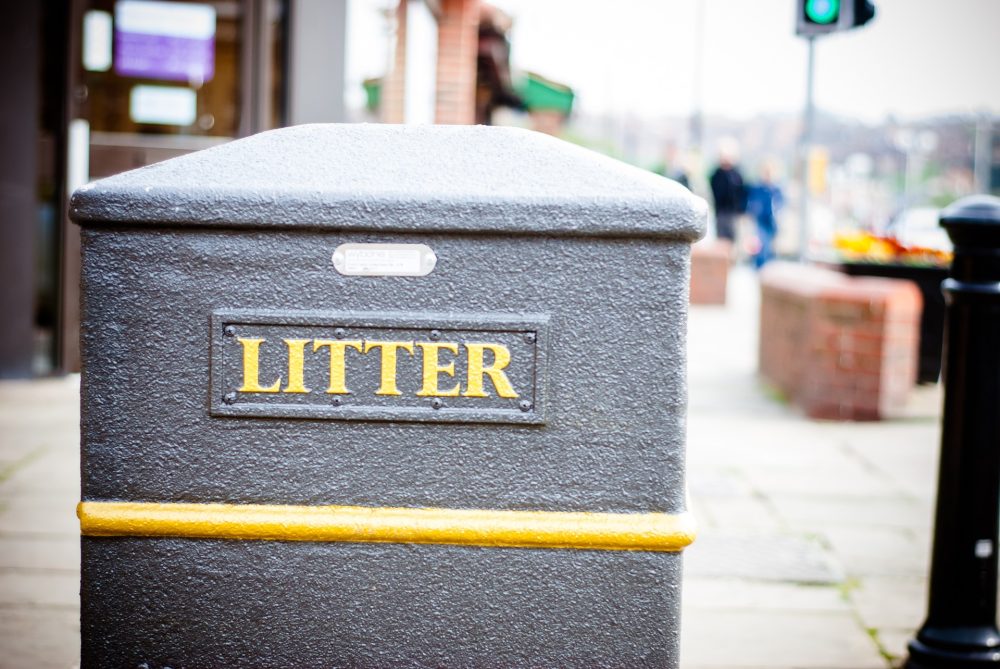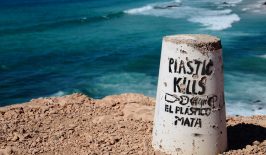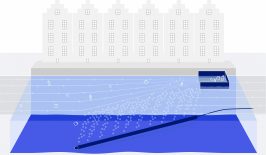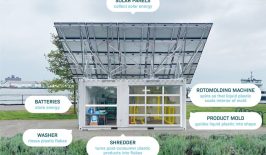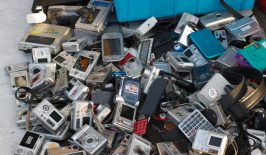We’ve all been there, walking down the street lamenting the amount of litter carelessly thrown on the pavement. Well, if you’re using a new app – that same litter might cause dollar signs to appear in your eyes.
Litterlotto is a mobile application which encourages users to bin trash in exchange for entering them into a prize draw for real money.
The approach works like this: Users pick up litter, or dump their own, into a proper public waste bin, capturing a photo of the moment. This is then uploaded to the app, making them eligible for smaller spot prizes and providing them with an entry into a monthly prize draw. The prize amount varies depending on location, but in the UK, the current monthly jackpot is 10,000 GBP, recently doubled from 5,000. In the case of spot prizes, the amount varies from 5 to 250 GBP.
Litterlotto recently announced its first UK winner, Louise Sunderland, in November, with the user winning the 5,000 GBP jackpot after picking up around 400 pieces of litter. Originally, the British app developer trialled the system in Denmark, where it apparently hit with huge success. According to Litterlotto themselves, 85 percent of the litter dumped using the app was so-called ‘Fugitive Litter’ – litter picked up from the street by someone else.
Of course, various rules and regulations have been put in place to avoid abuse. Each entry must involve a piece of non-organic litter, such as packaging, bottles, cigarette butts etc clearly being placed into the bin by the user. Litter from goods primarily designed to be consumed within the home, such as food cans, are not eligible. Still, with two million pieces of trash being dropped on British streets every day, it should not be difficult to find a legit piece of litter.
But how is all this paid for? Litterlotto is a for profit company, but the prize money is largely provided by its corporate sponsors. Currently, who exactly these sponsors are is not clear, but in the UK, Litterlotto has announced it is working with McDonalds to promote and fund the project. Of course, with much of the litter on our streets bearing McDonald’s trademark golden arches, it is good to see them being part of a solution. However, it would perhaps be better to see McDonalds reducing the amount of litter it produces in the first place, rather than deputising the public into clearing up the mess with promises of big cash rewards.
Gamification for Sustainability?
Concepts such as Litterlotto illustrate the increased attraction of gamification approaches to both developers and users. Gamification involves taking elements more commonly associated with games – both traditional and digital – and using them to influence real world actions. Examples could include giving ‘points’ for various actions, creating leaderboards or providing users with rewards for completing certain challenges.
According to sustainability funding platform Ecologi, gamification could help promote practical sustainable lifestyles and reduce the amount of ‘temporal discounting’ in our societies. Developed by psychologists, temporal discounting refers to the human tendency to overvalue benefits in the short term compared to the long term. Therefore, if the reward is seen as being too far in the future, individuals may not make changes in the present even if they will ultimately be beneficial.
This is certainly an issue for sustainability and climate protection. In most cases, benefits resulting from shifts in our lifestyles will not be felt for some time, or even by us at all. This results in the so-called attitude-behaviour gap, where even individuals who consider themselves sustainability-minded, may conduct actions which are harmful or not conducive to environmental protection. But, if such small actions with long term benefits can be encouraged today, this gap might be tightened. Ecologi concludes:
“This gap between our choices and our values makes it hard to tackle big-picture issues like climate change, which rely on sweeping behaviour change across society. Fortunately, gamification helps enforce those positive behaviours with small and regular rewards.”
Gamification has been used on a whole host of apps across a wide spectrum of sectors. You can be chased by zombies to spur you on in your daily runs, learn new languages with daily challenges, or even combat anxiety and sleeping issues. It’s perhaps not surprising, sustainability oriented apps have got in on the craze. Apps such as Climate Drops give users points for each environmentally friendly action conduct, which can later be redeemed for partner app products. Meanwhile, JouleBug gives users daily challenges to encourage them to add small, but environmentally friendly actions into their daily schedules.
Editor’s Note (10/1/22): This article was edited to correct an inaccurate statistic that suggested LitterLotto was responsible for 85 percent of all litter picked up from the street.
